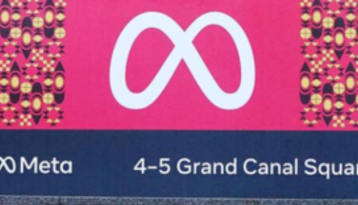Analyses & Studies
France Economic Policy Roundup 10 March

War in Ukraine: economic impact on France Coverage on the economic impact of the war in Ukraine continues to dominate French media, with an increasing focus on energy, and the consequences for consumers, finance, investments, and the agricultural sector, and the government’s strategy to face these. The war in Ukraine dampens the optimistic growth forecasts for France. The +3.6% growth forecast for 2022, presented in January by INSEE, now seems to be out of date, writes Le Monde. Rexecode, a private economic research institute, estimates that the war in Ukraine will cost the French economy between 0.7 and 1 point of GDP. In an article (in English) for Brussels-based think-tank, Bruegel, French economist Jean Pisani-Ferry, estimates the medium-term costs of the war in Ukraine on European budgets at €174 billion per year. Pisani-Ferry identifies several direct costs, including measures to limit or offset inflation for households, which could come with a reform of the European electricity pricing system to decouple it from gas. Other costs include higher prices from the EU weaning itself off Russian gas and the investments needed to diversify sources of supply and improve Member States' infrastructure. Measures to help refugees, as well as the general increase in defence budgets, are also additional costs. Calling for pooled investments at EU level, but within the framework of "flexible" budgetary rules, Pisani-Ferry argues that a new off-budget financial package, such as the NextGenerationEU instrument, could soon be “indispensable”. It is worth recalling that French growth was among the strongest in the EU and Eurozone at the start of the year, with a 2.4% growth rate compared to 1.1% for Germany, notes Ludovic Subran, chief economist at the Allianz Group, who expects +2.5% growth in 2022 (more or less the same as in Germany).
With regard to energy prices, credit insurer Euler Hermes estimates the average annual energy bill for French households will reach €2,800 in 2022, equivalent to a €400 increase compared to 2021. Energy spending accounts for 9% of total household expenditures, with major geographical disparities. Thanks to its energetic mix, which includes nuclear power, France is less dependent on Russia (France imports 16% of its energy sources from Russia) compared to Germany (27%), notes Ludovic Subran. Moreover, the weight of Russian gas in French energy purchases is low, estimated at 2.8% by Eurostat compared with nearly 17% for Germany and 18% for Italy. According to INSEE, the possible extension of the gas and electricity price cap from June to December 2022 will reduce inflation by one point thereby alleviating pressure on households. In December 2021, when the rate of inflation was only 2.8%, INSEE estimated that household purchasing power would fall by 0.5% in the first half of 2022, following a rise of 1.9% in 2021. It seems likely that household purchasing power will continue to fall, warns Le Monde. The Banque de France notes that households will be able to draw on the surplus of accumulated savings to deal with inflation, which stood at €221bn at the end of 2021 (156bn in 2019). Given the current degree of uncertainty, "households are likely to limit their spending, particularly on recreational activities, and keep their savings rate at a very high level", explains Stéphane Colliac, economist at BNP-Paribas to Le Monde. The danger is for consumption to stagnate. Moreover, the rising cost of raw materials – wheat, sunflower oil – imported from Russia and Ukraine is likely to increase the cost of food prices, following an average 3% price increase after the inflationary pressures seen last year.
This inflation could have serious social consequences, as pointed out by major trade unions, notes Les Echos. To protect consumers, unions have called for an increase in the minimum wage (Force Ouvrière, third largest union in France), targeted purchasing power measures (CFDT), as well as support for locally employed staff and expatriates in French businesses in Russia and Ukraine (CGT), and possible recourse to the short-work scheme in the event of supply chain problems (also CGT). The MEDEF, MEDEF, France’s largest employer union, wants the government to continue to cushion the blow of rising energy prices for companies and households. Some energy-intensive industries are seeing their energy bills skyrocket, in some cases exceeding the turnover of the previous year, warns François Asselin, the president of the CPME (confederation of small and medium-sized businesses). Asselin calls for support according to the weight of energy expenditures in the cost price of turnover of 2021. He also called for anticipating possible shortages of raw materials by helping companies to position themselves before others on substitute products with loans. Moreover, Asselin calls for work on supply chains, so as not to forget the subcontractors who have accompanied the large companies to Ukraine or Russia. Prime Minister Castex met employer and trade unions on 8 March to prepare the Resilience Plan.
While disruptions in trade between France, with Ukraine and Russia, will not significantly affect the economy, the war in Ukraine and sanctions continue to create significant challenges for French businesses, reports Les Echos. French flagship companies such as LVMH, Kering, Hermès and L'Oréal have ceased operations in Russia. However, some French companies are reluctant to follow suit. Despite suspending flights to Russia, Air France has kept its 33 employees, including five expatriates in Russia. Similarly, Airbus, though ceasing all maintenance activities, retained its 250 local employees, mainly Russian. The Mulliez group – Auchan, Leroy Merlin and Decathlon – have a strong presence in Russia, with industrial bases located between the Baltic Sea and the Bering Strait. Total generates 3 to 5% of its total revenues in Russia, 17% of its annual oil and gas production, and has invested billions in Siberian gas. Danone generates 5% of its global turnover in Russia with a dozen plants and 8,000 employees. Bonduelle continues to operate its three vegetable processing plants in Russia, citing the importance of securing food security. The hotel chain Accor (57 hotels and 3500 employees in Russia) has not closed up shop but has announced that it would not continue its development projects. Sanofi generates 1.3% of its turnover in Russia, mostly by selling imported medicines, except for insulin, produced locally, for the Russian market. Sanofi assures that it will continue to produce vaccines and medicines for those who need them both in Ukraine and Russia. There is also growing concern about insurance coverage. Guarantees issued by private insurers, such as Euler Hermes, Coface and Atradius - to French companies operating in Russia and Ukraine amount to less than €1bn, according to source close to government quoted by Les Echos. For Coface, Russia is now as risky as Angola, but not (yet) as risky as Iran or Yemen. Euler Hermes has announced that it has stopped issuing new guarantees for the Russian and Ukrainian markets. The issue now is whether exporters can receive compensation for unpaid expenses since the beginning of the war in Ukraine.
President Macron kicks off campaign with economic measures Following his announcement on 3 March – 24h before the official deadline for all candidates – that he would run for his re-election, President Emmanuel Macron began his campaign with a debate with around 200 citizens in Poissy, a town in the western suburbs of Paris, on 7 March. Emmanuel Macron has to balance deftly his role as President and as candidate. During the debate, the President moved seamlessly from the conflict in Ukraine to domestic issues, such as education and sport, and touched upon key and sensitive issues, such as employment and immigration.
President Macron took the opportunity of this first public meeting to unveil key economic measures. These include scrapping the TV license tax, tripling the so-called “Macron bonus” up to €2000 for those earning less than three times the minimum wage (over the 12 months before payment), developing profit-sharing, and addressing the economic consequences of the war in Ukraine. Scrapping the TV license tax is in continuity with the removal of the housing tax, a key tax measure of Macron’s 2017 campaign. The current amount of the TV licence tax, set at €138 in mainland France, is determined by the Parliament. This tax, the revenues of which amount to around €3.2bn a year, finances public sector television and radio channels, such as France Télévisions, Radio France, Arte or France Médias Monde, such as France 24 and RFI. Low-income households do not pay this tax, which represents around €600 million for public media, compensated by state funding. According to Government spokesperson, Gabriel Attal, the government will continue to fund public media, just not with the TV licence tax, in a plan spread out over 5 years. Far-right candidates Marine Le Pen (Rassemblement National) and Eric Zemmour (Reconquête!) also want to abolish the this tax, but seek to privatise the public broadcasting services with the exception of a few channels, such as overseas editorial offices, Arte and the National Broadcasting Institute (INA) for Le Pen and Franceinfo, France Médias Monde and TV5 Monde for Zemmour. Another key measure of President Macron, confirmed on 10 March by Government spokesperson Gabriel Attal, is to raise the legal retirement age to 65. President Macron had abandoned his original plans to reform the pension system (removing specialised pension schemes per branch of activity), due to mass strikes. The rationale behind this decision is the need for the French to work longer to finance their social welfare system. The reform aims to streamline the system and make it more sustainable. The President also supports raising the minimum pension income at €1000. In the long term, people will have to wait until their 65th birthday to claim their pension rights. The increase will be gradual, at a rate of four months per year of birth (62 years and four months for the first generation affected, 62 years and eight months for the second, etc.). In total, the process should be spread out until 2033. There will be exemptions for those who started working early, disability, and chronic health issues for whom the retirement age will be set at 62 years and four months.
President Macron also pledged to maintain the current support schemes to cover the rising cost of electricity and gas and on petrol for those who drive. According to the Ministry of Finance, the cost of limiting rising energy prices will cost the State at least €24 billion per year, notes the paper elsewhere. To counter soaring prices, President Macron has committed to implement a "food voucher” for low-income households. This measure was discussed but finally abandoned last year. Despite their cost, the President believes these types of measures are more effective than tax cuts. With the war in Ukraine on the forefront of the election, purchasing power – the main concern of voters – has taken centre stage. The measures previously taken by the government, including the capping of gas prices and limiting electricity prices rises to 4%, energy vouchers and inflation allowances, have already cost the State around €15 billion. During his meeting in Poissy, President Macron announced pushing back the end of the gas price caps from June to December 2022, taking into account the impact of the war in Ukraine. This figure could rise further with the forthcoming announcement of the Resilience Plan currently under preparation by Prime Minister Jean Castex to face the economic impact of the war in Ukraine, notably for consumers and the agricultural sector.
Philippe Martin, economist and deputy chair of the Council for Economic Analysis, a think tank attached to the Prime Minister’s Office, supports a targeted inflation allowance for low-income households. However, he is opposed to a price freeze on petrol and especially to a reduction in petrol taxes. Martin argues that it is in our interest to reduce our consumption of oil and gas not only for environmental reasons, but also because this consumption is in some way financing the war in Ukraine. While Martin supports a proposal by the International Energy Agency to introduce a one-time tax on the profits of energy groups, Laurent Saint-Martin (LREM), rapporteur for the Budget at the National Assembly and close to President Macron is against creating “fiscal uncertainty” for businesses. Whatever the solution, the war in Ukraine further compounds an already challenging situation for French public finances this year and in the medium term, observes Les Échos.
Looking ahead and in line with the current energy crisis, the President aims to reconcile the fight against climate change and purchasing power, which are two priorities in this presidential election. According to him, France has reduced its CO2 emissions twice as fast as in the last decade, and must go faster to achieve its 2030-2050 EU objectives. To achieve these goals, President Macron is relying on speeding up the retrofitting of homes and public buildings setting the target at 700,000 homes per year. In 2021, 800,000 applications for MaPrimeRenov' (public subsiding for retrofitting and renovations) were accepted worth €2bn. The Ministry of Housing expects 700,000 to 800,000 applications in 2022. The President also intends to increase the number of subsidies for the purchase of electric and hybrid vehicles, as well as pursuing the development of renewable energies, in particular solar and offshore wind power, and increasing energy savings.
Gender Equality enters the electoral campaign As 8 March marked International Day for Women’s Rights, Les Échos reports on a study by UN Women and the Young Presidents’ Organisation on organisational gender inequality. The study surveyed 300 executives of companies with a turnover of more than 10 million US dollars in 57 countries worldwide. According to the study, participants consider the persistence of gender bias as the biggest obstacle to achieving true diversity and equality within the corporate world. To a lesser extent, the difficulty in identifying female talent and the fact that women are more likely to take parental leave or responsibilities at home outside the workplace are also reasons given for gender inequalities in companies. The study also surveys participants on the most effective solutions to create and ensure gender equality in companies, notably through training on gender bias and flexible working conditions – the latter seen by participants as the most effective way to ensure more women in executive leadership positions. The study notes the importance of leadership role in promoting gender equality. The study found that when a woman heads a company, on average 43% of senior managers are women, whereas for a company run by a man, the proportion of senior women managers falls to 26%. This gap is somewhat smaller when looking at the place of women in the company as a whole, but is still significant. Thus, in the case of a company headed by a man, the overall rate of women in the organisation is 37% (compared to 48% on average when women are at the head of the company). Clearly, the higher up the hierarchy, the bigger the gap becomes. Having women at the top of the ladder plays an important role in promoting gender equality within the company itself. This finding comforts the 2021 Gender Equality Bill that makes it compulsory for all businesses with more than 1,000 employees to have at least 30% of women among their executive leadership by 2027 and by 40% by 2030.
According to the Ifa - Ethics & Boards Barometer "Gender diversity in management bodies", March 2022, there are currently 14 women heading an SBF120 company in France (10 in March 2021, 5 in 2017). By way of comparison, there are only eight women heading one of the UK’s top 100 companies, 8 in the US and 3 in Germany. France ranks first among the world's major countries with 46% of women directors on the boards of SBF 120 companies. To date, women make up 32% of the boards of the 100 largest listed companies in the US (nearly 38% in Great Britain and 31% in Germany). With 11 boards of SBF120 companies chaired by a woman (3 in 2017), France is ahead of the US (10 female board chairpersons in the S&P 100) and Germany, but behind the UK (the FTSE 100 has 16 female board chairpersons). In total, women make up 24% of Comex members in SBF 120 companies. France is ahead of its German, Spanish and Italian neighbours, as well as the Nordics (Norway, Finland and Sweden) and close to the US (25.8%).
President Emmanuel Macron made gender equality the “great cause” of his five-year mandate. Key measures in favour of gender equality under President Macron include the extension of delays for abortion, extending paternity leave from 14 to 28 days and ensuring the right to maternity for all women, enforcing child maintenance payments, criminalising public harassment, guaranteeing free access to contraception for those under 25 throughout lockdowns, and launching a national plan to tackle endometriosis. In a recorded interview with LCI and Elle, Emmanuel Macron proposes to create a registry of domestic violence offenders and a specialised legal deparment to deal with domestic violence. Looking back on his mandate, the President-candidate notes that the proportion of women at the National Assembly has gone from 11% to 28%. President Macron’s government respects gender balance – the Defence Minister is a woman (Florence Parly) as well as the Secretary General of the Government (Claire Landais). Other key women ministers include Elisabeth Moreno, Gender equality, diversity and inclusion minister and Agnès Pannier-Runacher, Industry minister.


